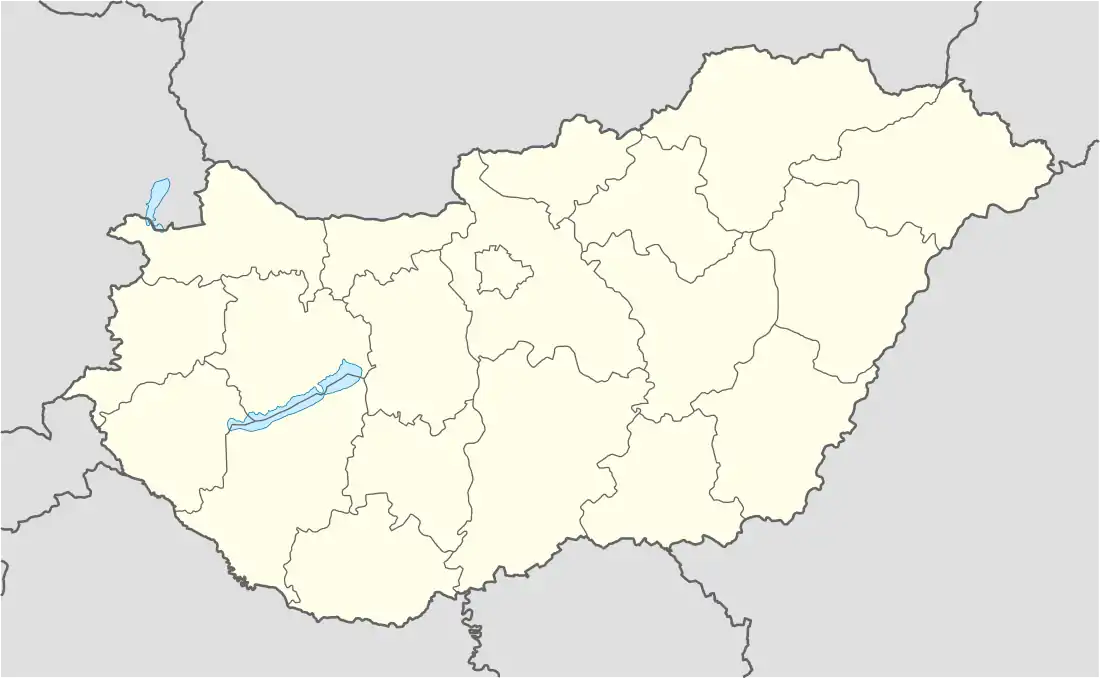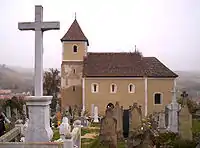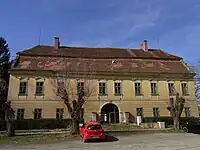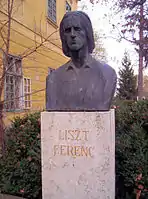Mecseknádasd
Mecseknádasd (Croatian: Nadoš, Nadaš; German: Nadasch) is a town in Baranya county, Hungary. Until the end of World War II, the inhabitants were Danube Swabians. Most of the former German Settlers were expelled to Germany and Austria in 1945–1948, following the Potsdam Agreement.[1] Only a few Germans of Hungary live there today. The majority are the descendants of Hungarians from the Czechoslovak–Hungarian population exchange.
Mecseknádasd
Nadasch | |
|---|---|
 Mecseknádasd Location of Mecseknádasd | |
| Coordinates: 46.223968°N 18.46408°E | |
| Country | |
| County | Baranya |
| Area | |
| • Total | 36.08 km2 (13.93 sq mi) |
| Population (2008) | |
| • Total | 1,682 |
| • Density | 46.01/km2 (119.2/sq mi) |
| Time zone | UTC+1 (CET) |
| • Summer (DST) | UTC+2 (CEST) |
| Postal code | 7695 |
| Area code | 72 |
Sightseeings
 Medieval Saint Stephens church
Medieval Saint Stephens church Bishops palace
Bishops palace Bust of Franz Liszt
Bust of Franz Liszt
In the cemetery hill there is an old, Árpád-age Romanesque church, which was originally the parish church of the village.
In front of the elementary school behind the Bishop's Palace is a statue of Franz Liszt.
Moreover, the village cultivates the remembrance of Saint Margaret of Scotland. She was the daughter of the English prince Edward the Exile, son of Edmund Ironside. She was born at Castle Réka, Mecseknádasd.

